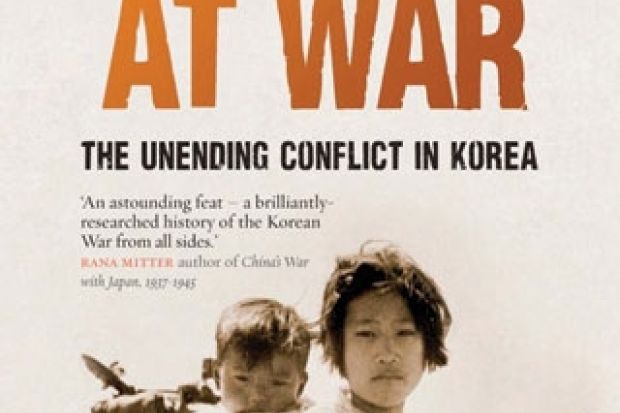Sheila Miyoshi Jager’s Brothers at War is simultaneously a detailed account of the political and military history of North and South Korea from 1945 to the present and a regional history of interstate rivalry involving the US, Japan, the People’s Republic of China, the country formerly known as the Soviet Union and its successor state. It is, of course, unfair for a reviewer to ask for a book other than the one the author chose to write. Yet what’s missing makes this thick book often feel rather thin. Its intense focus on politics and diplomacy fails to give the reader a sense of what the society itself was like, its economic and social arrangements, North or South. I should have liked to know more, for example, about the response of ordinary people to the rapidity with which the country moved from liberation to occupation to all-out war and thence to a recovery in which memories of the war were actively suppressed for decades. The recent shift in South Korea to an effort to come to terms with the past is discussed only in a footnote to the Truth and Reconciliation Committee, albeit a long one.
Jager presents the history of the peninsula as a struggle for legitimacy, one that the South, prosperous, well connected even to the North’s remaining ally, China, has clearly won. Impoverished, isolated, North Korea regularly engages in militant rhetoric, insisting that its dignity must be respected, as if the entire country were Willy Loman: attention must be paid. Jager argues that in this situation, the continuing presence of US troops in the demilitarised zone has been a force for peace and stability. One might, by contrast, consider the possibility that North Korea is not being entirely paranoid in viewing the US presence as a continuing military threat, especially in the light of the regular, massive military exercises jointly conducted by the US and South Korea.
The first half of Brothers at War is devoted to the brutal civil war that consumed the country from 1950 to 1953, a war compounded in its destructiveness by the participation first of the US and later China. The US air war was particularly ferocious, outstripping the Allied (non-nuclear) bombing of Japan during the Second World War. In the course of three years, the US dropped on Korea 635,000 tons of bombs and 32,000 tons of napalm; in the closing days of the war, it destroyed North Korea’s main dam, flooding 70 villages. Jager’s account of the protracted armistice negotiations that finally brought the war to a temporary halt includes a persuasive discussion of the irrelevance of President Dwight D. Eisenhower’s nuclear threats against China to the successful outcome. Less satisfying, in my view, is her subsequent discussion of nuclear diplomacy, which focuses on North Korean efforts and omits any mention of the regularity with which the US, as recently as last April, has threatened Pyongyang with nuclear warfare.
Jager’s discussion of South Korea’s participation in the Vietnam War is in some respects the fullest I’ve read, pointing out, for example, that Korean troops comprised 20 per cent of the combat forces in Vietnam and exploring at some length the activities of North Korea during the war, which included an attempt to assassinate the president of South Korea and the capture of the USS Pueblo. She does not, however, discuss the atrocities committed by South Korean troops in Vietnam, instead concluding that Korea’s participation in the Vietnam War meant that for “the first time since the opening of Korea in the late nineteenth century, the nation had garnered the world’s respect”. I have difficulty imagining where this might have been the case, outside, perhaps, Saigon.
Brothers at War ends with an interesting discussion of China’s changing but ever-increasing role in the region. Jager concludes in a voice of omniscient indeterminacy: “Understanding and responding to these changes will require reflection on the lessons and legacies of the unending Korean War and the role this conflict has played and will continue to play, in shaping the region’s past and future.” One wishes she’d written just one or two more sentences indicating what, exactly, that role might be.
Register to continue
Why register?
- Registration is free and only takes a moment
- Once registered, you can read 3 articles a month
- Sign up for our newsletter
Subscribe
Or subscribe for unlimited access to:
- Unlimited access to news, views, insights & reviews
- Digital editions
- Digital access to THE’s university and college rankings analysis
Already registered or a current subscriber? Login
